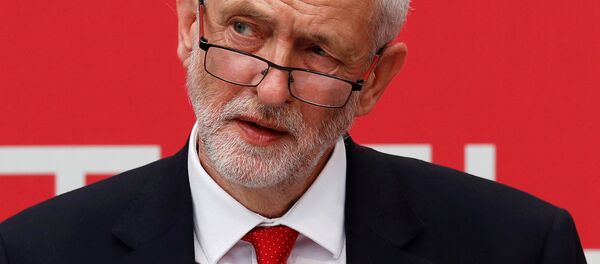Kristian Rouz — Britain's top financial market watchdogs has unveiled its five main priorities for the fiscal year 2019/2020, by which time the UK is expected to have finally left the European Union. The regulator says it will focus on making the UK's financial system more transparent, customer-friendly, and fair, while also cutting red tape by implementing the latest technology.
The FCA said it would continue its mission, working with the UK's financial enterprises and advancing their interests in the international financial system — including by working with foreign regulators and international watchdogs.
"Post-Brexit, we need to consider the future of regulation to ensure the regulatory landscape is fit for the challenge it faces," the FCA said.
READ MORE: UK's May Says No-Deal Preparations Must Continue Despite Brexit Delay — Reports
The regulator said it has five main points on its 2019-2020 agenda, and the implementation of these priorities will affect the majority of the UK's financials across several industries, including banking, investment, and wealth management.
The FCA's first priority is advancing the improvements in corporate culture and governance, aimed at boosting labour productivity and transparency in the UK's financial sector. This includes extending the Senior managers and certification processes to all enterprises.
Second, the FCA will seek to make sure the UK's financials provide fair and accurate information to their customers and business partners. This will include tighter monitoring of business practices and work ethics, with the ultimate goal of boosting the UK's appeal among international investors — as everybody wants to keep their money in a fair and transparent environment.
Third, the FCA will ramp up efforts to improve the firms' operation resilience, which would include reducing the firms' leverage and boosting revenues, as well as building 'safety cushions' within corporate budgets — to minimise the risks of possible economic shocks originating both at home and overseas.
"In order to ensure we are a regulator that continues to serve the public interest, we need to adapt to the ever-changing environment," Andrew Bailey, the FCA's chief executive, said.
READ MORE: Over 80% of UK Finance Leaders Pessimistic About Long-Term Brexit Effects — Poll
Fourth, the FCA will crackdown on financial crime, the harbouring of ill-gotten gains, and money laundering by utilising better technology (including advanced encryption) and also by working with governmental and law enforcement agencies.
Finally, the FCA will also improve its surveillance of high-cost credit — which is considered to be a risky lending practice to potentially unreliable or insolvent borrowers — as well as retirement savings.
The watchdog's statement comes as the Brexit process appears to be dragging, with two delays in talks with the EU and in Parliament, and an apparent lack of public consensus on the matter. Brexiteers, of course, are supportive of boosting the FCA's surveillance of the UK's financial system, which they see as restoring Britain's sovereignty after decades of working with EU regulators.
The Exchequer and the Treasury Select Committee in Parliament have already announced their plans to review the UK's financial regulations after Brexit — and the FCA's effort could fall in line with their aspirations.
But some Labour Party officials say the changes could greatly benefit corporate CEOs and institutional investors, while leaving workers and retail investors at a disadvantage. However, Labour has criticised the EU's regulatory framework in the past as well.
Treasury Committee Member Nicky Morgan, a Tory MP from Loughborough, said adopting new changes to financial regulations could take 'decades' — due to, as she put it, 'deep philosophical divisions' between various parliamentary factions.
It is still unclear whether the UK indeed leaves the EU in the 2019-202 fiscal year, but FCA officials believe their new strategy could help streamline the process, making it less painful — and minimising the possible losses for the British financials.




